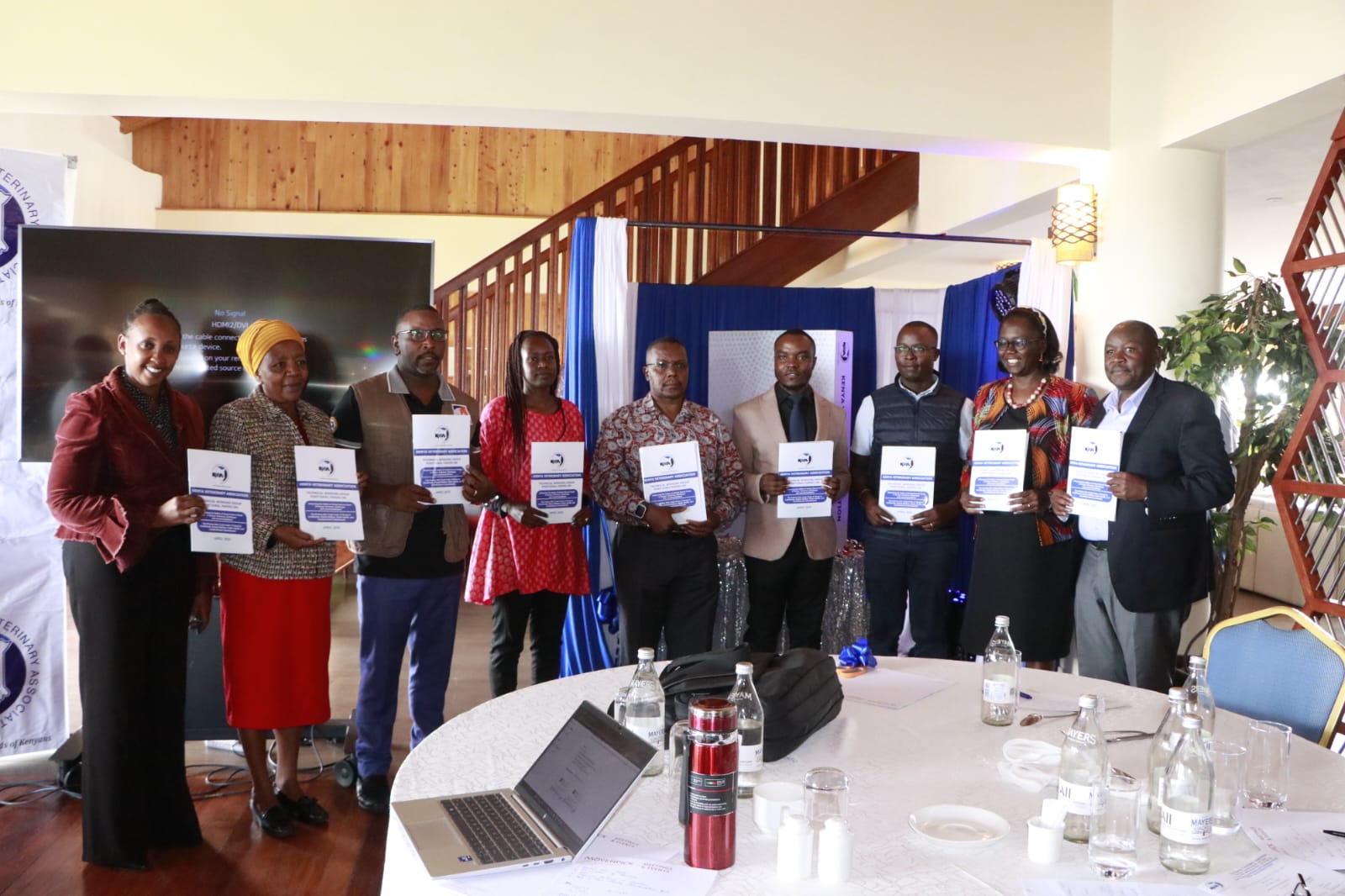
 Kenya Veterinary Association officials during a meeting on April 4, 2025/HANDOUT
Kenya Veterinary Association officials during a meeting on April 4, 2025/HANDOUT
The Kenya Veterinary Association (KVA) is calling for immediate prohibit of all forms of commercial slaughter and export of donkey skins.
Association says their call is aligned with the African Union 15-year moratorium issued in 2024 and constitutional provisions that protect animal welfare, public health and cultural heritage.
Speaking to the press in Nairobi on Friday, Samson Muchelule, CEO, the Kenya Veterinary Association (KVA) said between 2016 and 2019, Kenya lost more than 40 per cent of its donkey population, driven by the demand for ejiao (donkey hide gelatin) in China.
Despite a national ban, Muchelule revealed that trade continues illegally, fueled by theft and cross-border smuggling.
“We appreciate the government of Kenya’s initiative by the Ministry of Interior and Coordination of Government and the Ministry of Agriculture and Livestock to stop the donkey skin trade and illegal meat,” he said.
In addition, he applauded the efforts for running a 100-day Rapid Results Initiative in May 2024 which has resulted in doubled efforts by the security agencies in fighting illegal slaughter of donkeys and trade in their meat and skins.
“Donkeys are more than animals in Kenya, they are lifelines for families, especially in ASAL areas. The donkey skin trade undermines food security, public health and the cultural identity of entire communities,” he noted.
He further warned that the trade threatens public health through meat fraud, with uninspected donkey meat sold to consumers as beef or other meat and mental trauma caused to the donkey-dependent communities by donkey theft.
The CEO notes that the trade also violates animal welfare laws and constitutional rights, including the right to a healthy environment, property ownership and cultural protection.
“Donkey skin trade has been linked to disease outbreaks such as equine influenza in West Africa, which remains a threat to other equines in Kenya,” he argued.
He adds that Kenya Veterinary Association urges the government to enforce a total ban and revoke any existing licenses, criminalise illegal slaughter and smuggling, establish national donkey identification and tracking system and advancing donkey genetic improvement and reproduction and launch public education campaigns and support alternative livelihoods for communities previously engaged in the trade.
He noted that in a bid to enhancing the Safety of Animal Source Foods (ASFs) in Kenya, there need to develop County level Veterinary Public Health laws that cover Food Safety of all ASFs, increase funding for food safety enforcement, including staffing, training and infrastructure and ensure that all slaughterhouses are staffed with veterinary officers and meat inspectors.
Other proposed interventions by KVA includes; strengthening surveillance for zoonotic and trans boundary animal diseases, facilitate the provision of public cold chain systems for milk, meat and fish to reduce contamination risks, conduct routine microbiological quality assessments for milk, meat, and fish.
Others are sensitising all stakeholders on the importance of ASFs Food Safety, enforce laws against illegal slaughter and unregulated meat transportation, establish a hotline for reporting suspicious food safety violations, strengthen collaboration with veterinary services to ensure food safety along the value chain for all ASFs and implement regular surveillance for foodborne disease outbreaks.
“We not saying that donkeys are animals that should not be eaten, they can be eaten, food animals are gazetted by the CS,” Osori stated.
He decried low donkey population in Kenya alleging that the donkeys that are being slaughtered in these butcheries are stolen from the communities that need them.













